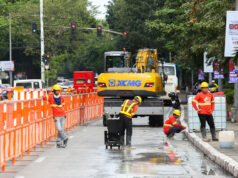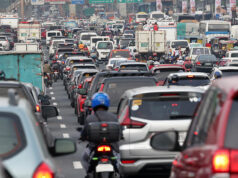Swiss tourism says stay home, travel later — but keep us in mind
A YEAR AGO, a video promoting tourism to a certain country or location would have been intended to lure people to the place — showing its amazing scenery, its friendly people, and good food. Switzerland’s most recent video includes the usual, only this time, the country is encouraging potential tourists to stay home, be safe, and travel later.
Called Dream Now, Travel Later, the 30-second video posted in the MySwitzerland YouTube channel in March shows the Matterhorn alongside text to “dream now, travel later” and to stay safe and stay home as Switzerland will welcome them soon.
“Dream Now, Travel Later is a solidarity program during the time that you cannot travel. So instead of promoting our most beautiful destinations and offers, we said we wanted to do more of a mood-making kind of program,” Ivan Breiter, director for Southeast Asia of Switzerland Tourism, told BusinessWorld via an online interview in early August.
Similar campaigns have been launched by Ireland and Australia, both of which serve as reminders not to forget the beauty of the country while travel is still difficult.
Aside from videos encouraging people to travel to Switzerland once it’s safe to do so, Switzerland Tourism also created a program to promote Switzerland as clean and safe — while people from most countries still can’t travel to destinations for tourism, Switzerland has been welcoming tourists from neighboring countries in Europe.
The Clean and Safe program outlines safety measures undertaken by tourist establishments and can be viewed on the Switzerland Tourism website (https://www.myswitzerland.com/en-sg/planning/about-switzerland/clean-safe/).
Switzerland has been able to control the COVID-19 (coronavirus disease 2019) outbreak successfully since March and currently has 39,627 cases, 34,100 of whom have already recovered.
But how has the COVID-19 outbreak and limitations to travel and movement affected tourism in the country? Well, Mr. Breiter noted that before the pandemic hit, Switzerland had been seeing a steady increase in tourist arrivals, with hotels recording 39.6 million overnight stays in 2019 according to swissinfo.ch in February.
Last year, the country recorded 46,000 overnights from the Philippines, an increase of 13.3% from 2018 numbers. The number had been steadily increasing, said Mr. Breiter, every year since 2006.
But because of the COVID-19 pandemic, he said that they only have “about 20% of overnights” compared to last year.
From March until the end of the year Mr. Breiter said that they are looking at a loss of 25% in terms of tourist arrivals, a complete reversal of the gains made in the previous years. This is despite having a domestic tourist market that has started traveling and tourists from nearby countries like Germany visiting. There is hope for recovery, though he thinks full recovery will come by 2023.
“On one hand we [need] capacity to go up, and then we have problems in hotels that closed down, so there’s going to be less offers available,” he said before adding that as long as “there is no solution for the problem,” referring to a vaccine for COVID-19, a full recovery in the tourism sector won’t be possible. He thinks vaccines will only be available starting 2021.
Will the pandemic change the way people travel? Yes, said Mr. Breiter, but these may be short-term changes.
“What we see is more people traveling using rental cars [and] more people using apartments instead of popular accommodations. More people are also traveling to smaller tourism destinations, to smaller villages. More nature travel is taking place,” he said, before noting that Switzerland is a destination where they have so many different sights and experiences that “no single destination has 10% of the overall overnights in the country,” making it a less crowded tourism destination.
“At this moment, [there is] a change in travel behavior. How this means in a year or two depends on the situation and how it goes,” he added. — Zsarlene B. Chua



